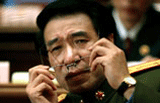Mapping trajectory of global capital flows
Updated: 2014-12-08 07:33
By CHEN JIA(China Daily)
|
||||||||
 |
|
Taking into account domestic and overseas economic conditions, China may retain its targeted easing in monetary policy in 2015 to avoid a hard landing of the economy, with the possibility of further cuts in both bank reserve requirement ratio and benchmark interest rates, experts say. [Provided to CHINA DAILY] |
Experts expect nation to play bigger role in global economy by next year
Economists are viewing China's monetary policy in 2015 as the next beacon in directing global capital flows, as the US dollar strengthens and the Japanese yen weakens.
They suggest that the economy will grow in its influence on the world's economic recovery, as policymakers continue their efforts to strengthen growth at home.
Rather than responding to the actions of the US Federal Reserve and the Bank of Japan, experts prefer to view China's motivation for rates cut on Nov 21 as being to lower borrowing costs for the real economy and accelerate interest rate liberalization.
The People's Bank of China, the country's central bank, announced to lower the benchmark one-year deposit rate by 25 basis points to 2.75 percent and cut the lending rate by 40 basis points to 5.6 percent.
The upper ceiling on the deposit rate was raised to 120 percent of the benchmark rate, up from the previous 110 percent.
Nearly three weeks before that, the Bank of Japan expanded its quantitative monetary easing policy, right after the US Federal Reserve announced it was ending its third round of quantitative easing. Since then the yen has weakened sharply against the dollar leading to depreciating pressures on other Asian currencies.
Economists are concerned that the ongoing depreciation of the yen may rekindle competitive currency devaluation, or a "currency war", in the region.
Japan's biggest export competitors, particularly South Korea, may cut their own interest rates further after it lowered its rates twice this year, economists say.
But Louis Kuijs, chief economist in China at the Royal Bank of Scotland, says it is unlikely that the Chinese yuan would depreciate in response to the yen's fall.
"Competing with Japan is not a major issue in China, as the importance of Japan as an export market has diminished," he says.
"Aware that China is still growing its share of global trade, the country's leaders are more concerned about the state of global demand than about its own competitive position."
Concern has grown after the recent appreciation of the greenback drove up the value of the yuan against most other major currencies.
Learning from the lessons of the Asian financial crisis in the late 1990s, and more recently the 2008 global financial crisis, China prefers to keep its currency value fixed to the dollar, while many other currencies have suffered depreciation or even turmoil in the international financial markets, says Kuijs.
China's increased influence on the global economic and financial system, says Kuijs, and more specifically, its goal of internationalizing the yuan strengthens its case against engaging in anything that looks like "competitive devaluation".
A recent report from Singapore's DBS Group suggested the yen's depreciation will boost Japan's real economy but that would only be short-lived.
"Over the past two years, the depreciation of the yen failed to lift export volumes and industrial output proportionately. Structural headwinds and fiscal constraints will continue to weigh on the economy," it says.
Besides, it pointed out that any rise in Japan's capital outflows could be a longer-term story, determined by the negative growth and interest rate differentials between Japan and the rest of the world.

 China, Brazil pledge to promote science, technology co-op
China, Brazil pledge to promote science, technology co-op
 'Big' Peking opera staged in New York
'Big' Peking opera staged in New York
 ZTE, NBA team partners in business, charity
ZTE, NBA team partners in business, charity
 Jack Ma awarded Honorary Chairman of Zhejiang Chamber of Commerce
Jack Ma awarded Honorary Chairman of Zhejiang Chamber of Commerce
 2014 Yearender: Life underground
2014 Yearender: Life underground
 South China's 'little Africa'
South China's 'little Africa'
 Trending: Eiffel Tower replica in Hangzhou
Trending: Eiffel Tower replica in Hangzhou
 Detailed models made from rice and trash
Detailed models made from rice and trash
Most Viewed
Editor's Picks

|

|

|

|

|

|
Today's Top News
Illinois university signs agreements with Chinese college
ZTE, NBA team partner in business, charity
Chinese investors in Brazil told to avoid risks
Economists call for increased public spending in China
Xiaomi's smartphone taps into the US market
Peruvian product hit in Chinese market
Chinese role expected in Mexico's energy reform
Brazil film festival delights Beijing and Shanghai
US Weekly

|

|







